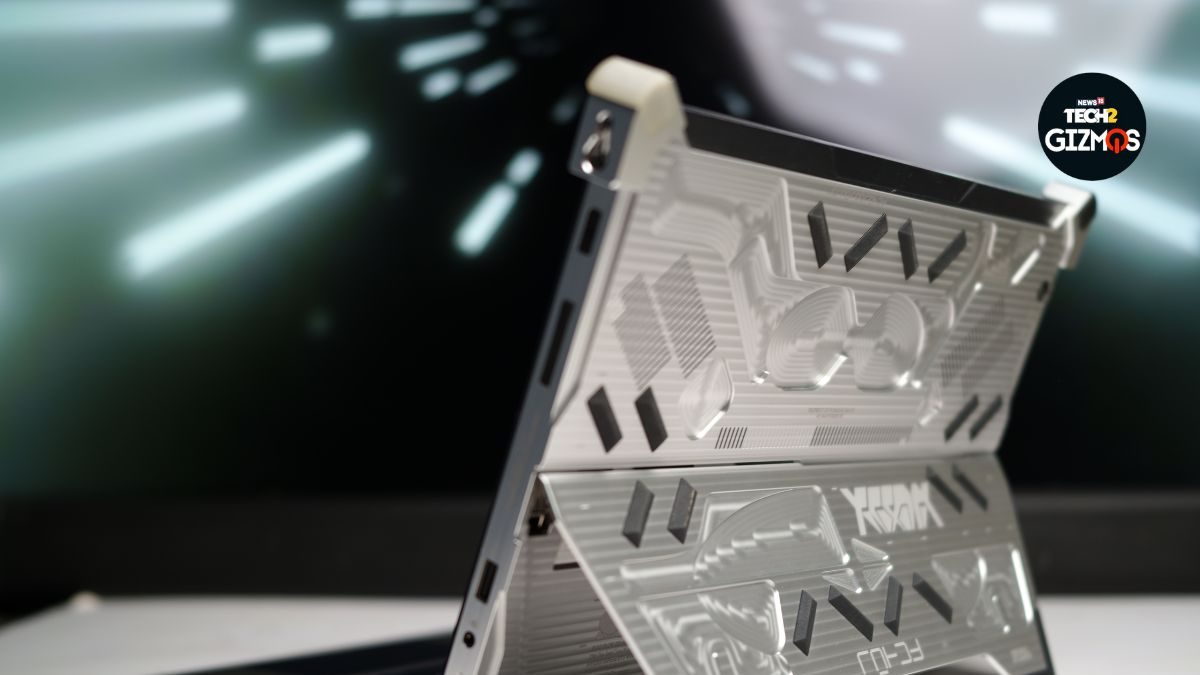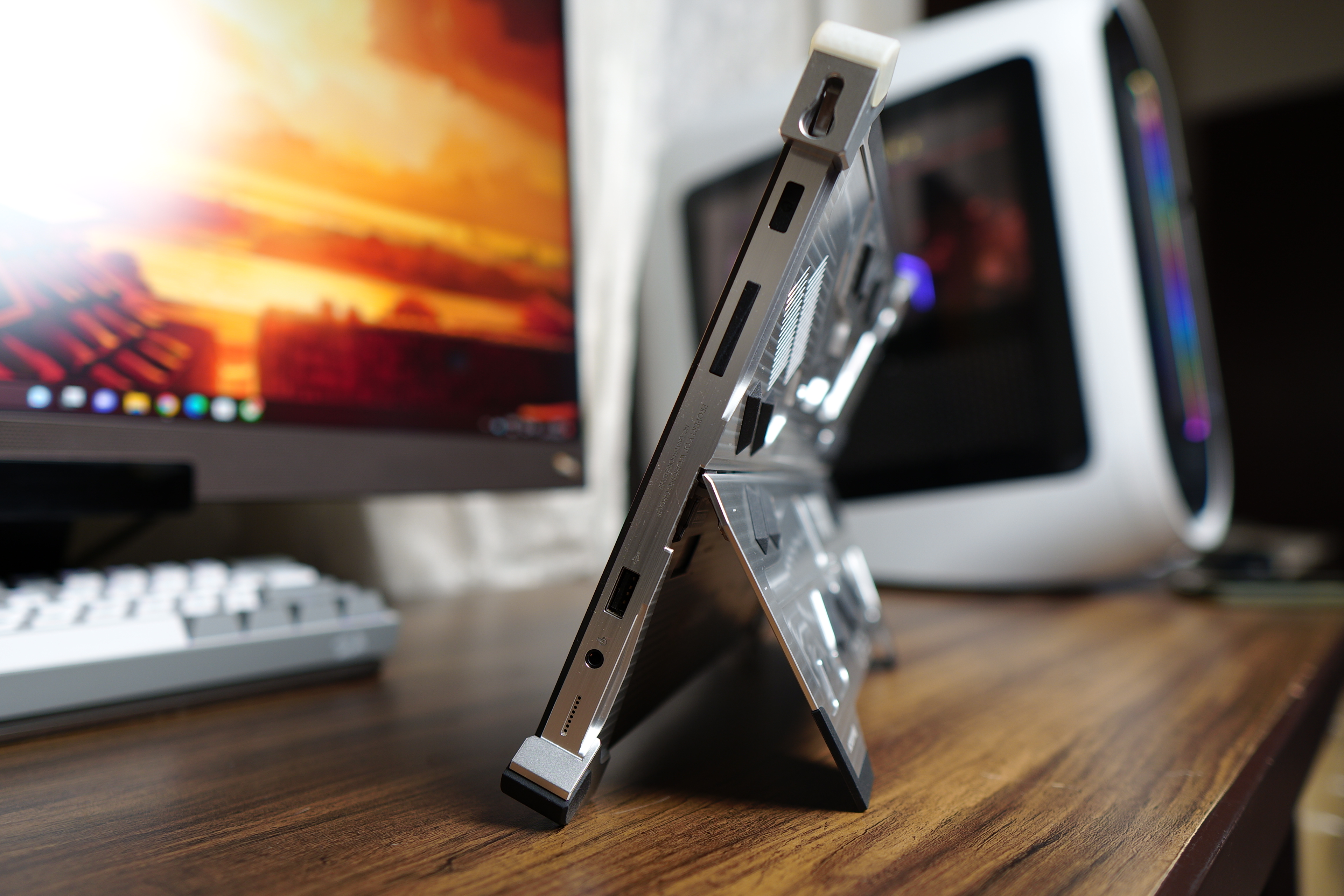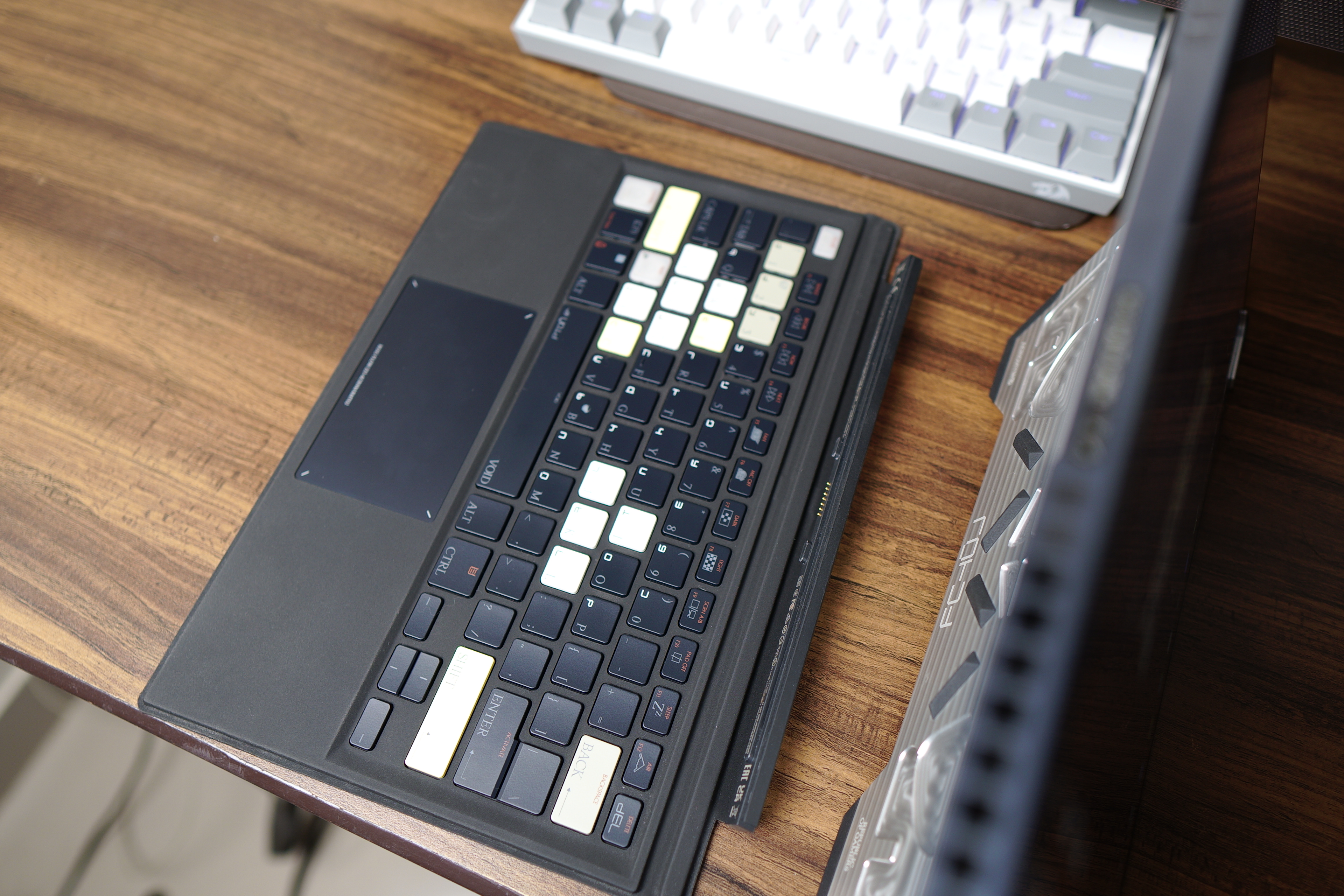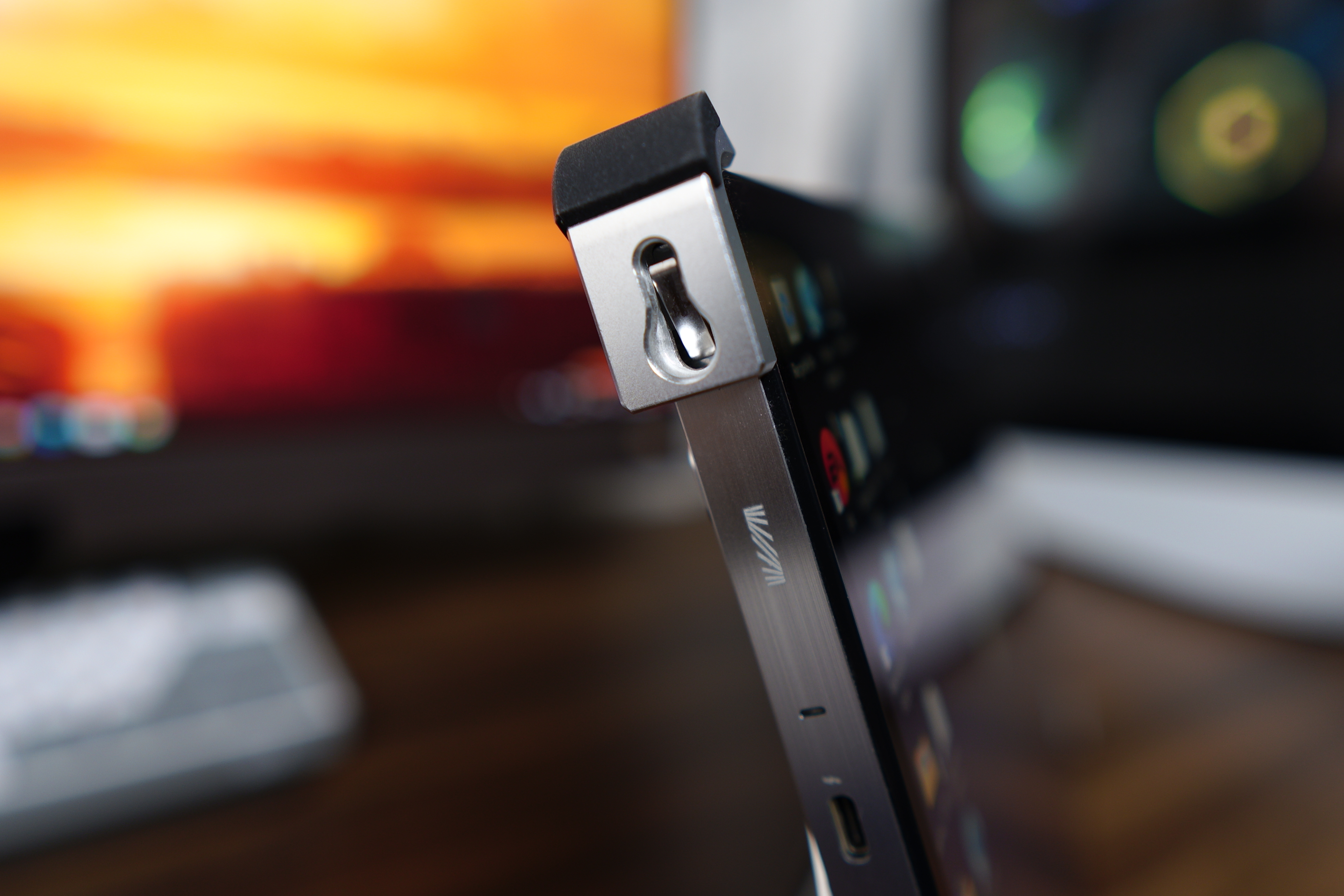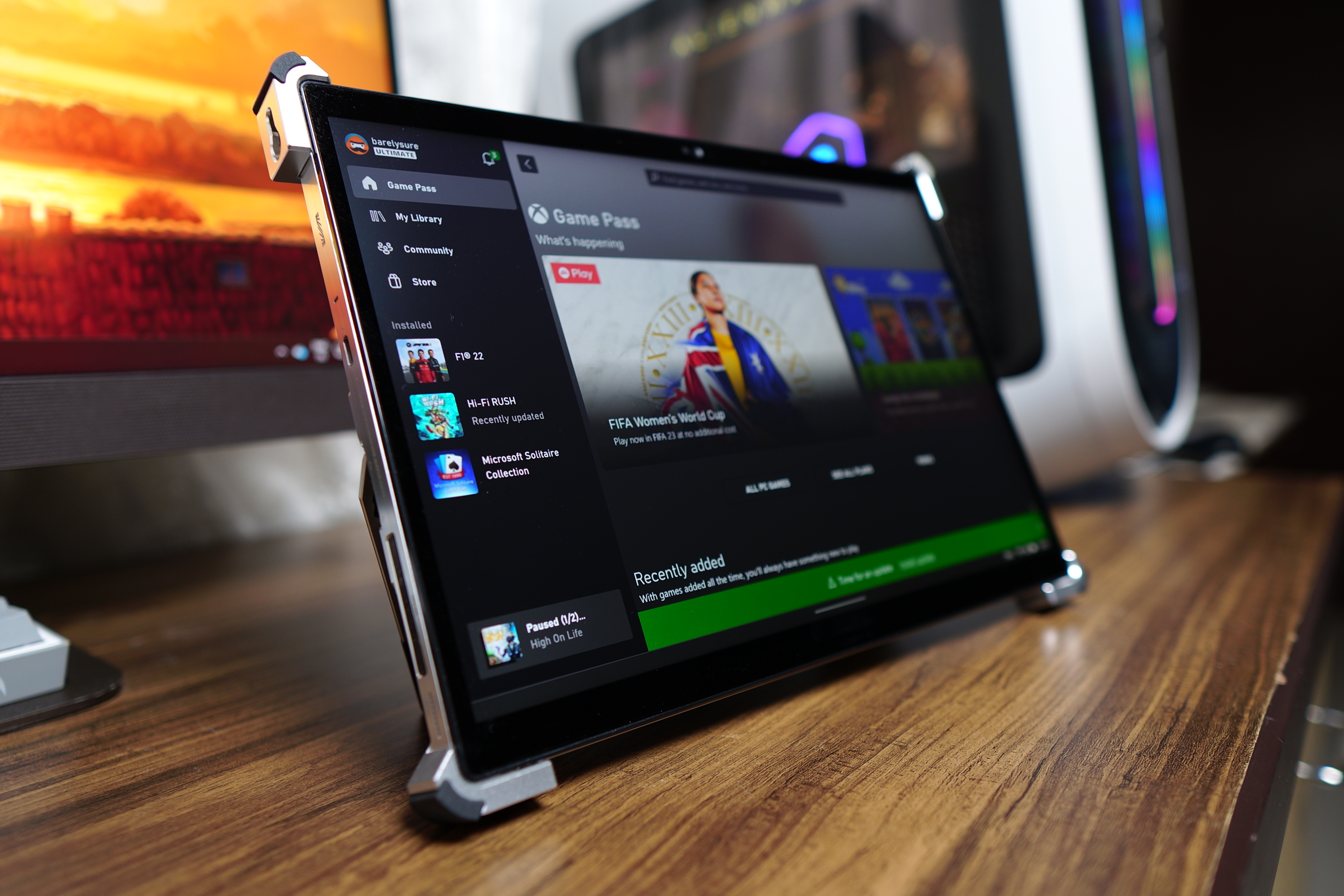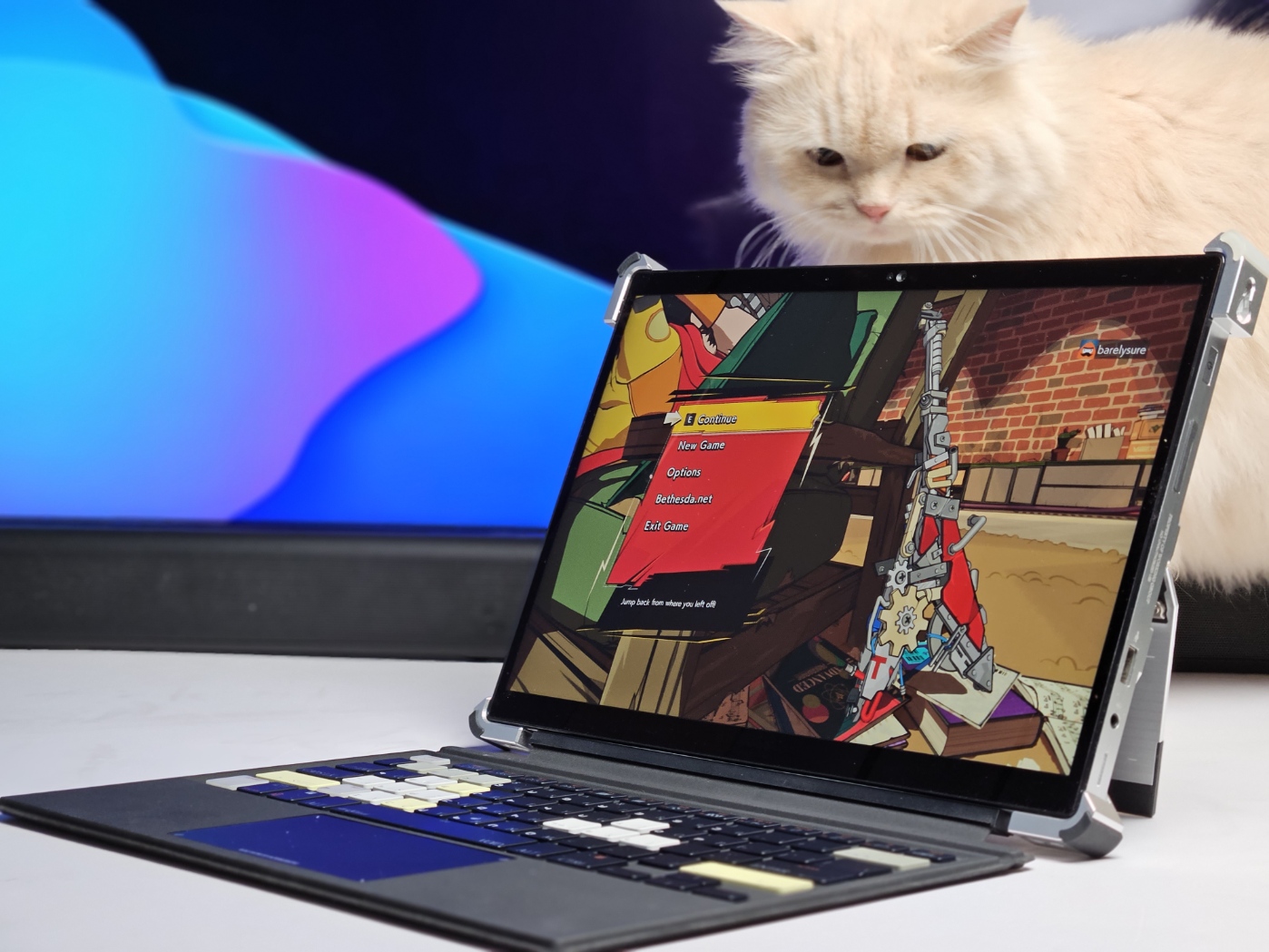The gaming laptop has long been the preferred choice for gamers seeking a portable gaming solution. Nevertheless, hybrid devices like the ROG Flow Z13 ACRNM aim to offer the best of both worlds by functioning as both a laptop and a tablet—as its 13.4-inch display and detachable keyboard provide the option to use it as a tablet or laptop when needed.
Although the concept is innovative, it raises questions about its practicality. The ROG Flow Z13 ACRNM has more than enough power under the hood to serve as a capable gaming solution—making it a unique device catering to a specific niche market. However, its high retail price and certain limitations come with it.
Throughout my testing, I kept asking myself—why would someone choose the ROG Flow Z13 over a traditional gaming laptop like the company’s own ROG Zephyrus M16 lineup? In this review, I aim to answer this and identify the target audience for whom the ROG Flow Z13 would make sense as a purchase.
Powerful Device, but Is the Form Factor and Unique Design More Important Than Functionality?
For starters, you get fairly competent and powerful gaming-centric specifications with the ROG Flow Z13. Not only do you get the latest Nvidia RTX 40 series GPU in the form of the RTX 4070 with 8GB GDDR6 memory, but you also get the 13th Gen Intel Core i9-13900H chipset clocked at 2.6 GHz. It is a 14-core processor with 6 performance cores and 8 efficiency cores. ASUS has also made sure the RAM is generous, with 32GB LPDDR5 RAM on offer.
Simply put, the performance you can get out of the device is certainly good, and it will run most AAA games at high-ultimate settings at decent frame rates, but there’s a big caveat that we will talk about later in this review.
I played titles like The Last of Part I, Apex Legends, and Returnal at maximum settings, and the system did not disappoint. With Apex Legends turned to performance-oriented settings, the system averaged around a comfortable 180-200fps and did not drop. The Last of Us Part I running at high settings, too, delivered a stable 55-60fps. This is quite commendable for a device this size. And, coupled with the solid 13.4-inch IPS QHD+ panel that refreshes at 165Hz, you have a robust portable gaming setup on your hands. The display itself is quite bright, has accurate color rendition, and is certainly sharp with a resolution of 2560 x 1600.
However, to use the ROG Flow Z13 to its full potential, you will have to use a controller with it or perhaps use the supplied magnetic keyboard and a mouse. The keyboard, in my experience, is a mixed bag. Not only is the font hard to read, but the keys themselves are mushy and not the kind you would expect from a dedicated gaming laptop; Ergo, here’s how I used the ROG Flow Z13 during my testing: I got rid of the keyboard and simply used a PlayStation DualSense controller to play games on it.
The detachable parts—which consist of both the keyboard and the trackpad—are easily detachable as they attach magnetically, so users can easily remove them without effort.
Moreover, the back of the device features a built-in kickstand that is quite sturdy, so you can simply pop it open, pair a controller, and start gaming.
For the design and aesthetics, ASUS has collaborated with ACRONYM, a designer apparel brand, and through the font work and the rugged metallic build that the ROG Flow Z13 offers—the design inspiration is certainly visible. The back is a flurry of interesting design choices that I haven’t seen yet—ever. It is certainly eyeball-grabbing. It would be an understatement to say that it looks straight out of a cyberpunk setting. I remember carrying the Flow Z13 to a friend’s house for a co-op gaming session, and everyone there was surprised seeing the Flow Z13. So if a gaming statement piece is what you are after, the device will not disappoint.
Coupled with straps in-box—which you may attach to the tablet/laptop or whatever you would like to call it—the briefcase-like design, carried along with some streetwear, will certainly create a striking look. But, in reality, would you want to carry your expensive investment on your shoulders—no matter how durable it might be? Well, I, for one, wouldn’t do that, but I know many who might.
The Big Caveat
Like most gaming laptops, the battery life you can expect from the ROG Flow Z13 isn’t great. You can hardly play an hour and a half of big, power-hungry AAA games like The Last of Us Part I or even Apex Legends, and this is what defeats the portability factor for me.
Moreover, to extract the maximum performance from the RTX 4070, you will have to plug in the supplied 130W charger anyway, and playing without being plugged in isn’t an experience you would want after spending close to Rs 3 lakh.
So, here’s the thing: the ROG Flow Z13 is certainly a capable machine that is quite the eye candy; it is well-built and can handle anything you throw at it—but only when you are plugged in.
You can use Asus’ Armoury Crate app to switch between different modes to optimize performance for the task at hand. For example, you wouldn’t need to keep your computer running at full power when you’re just typing a document. This is where the Armory Crate app comes in handy.
Good Thermals for the Win?
I was particularly impressed by the ROG Flow Z13’s thermal management. The device never slowed down, even after playing multiple games of Apex Legends. The temperature reached 75 degrees Celsius, but this did not affect performance. The titles ran smoothly without any frame drops.
I believe, the sizeable air intakes on the back of the system and the two large outlets on the top contribute to the good thermal management—and if you plan on playing competitive shooters on the ROG Flow Z13, you will not be disappointed.
Verdict: Should You Invest In a Laptop-Tablet Hybrid?
As mentioned previously—the use case for the ROG Flow Z13 exists—and it might appeal to those seeking its quirky, head-turning design. However, the question remains: does it justify its asking price of Rs 2,84,990—and do gamers looking for a reliable portable gaming setup should choose it over options like the company’s own ROG Zephyrus M16 2023?
The straightforward answer is no. Opting for the ROG Flow Z13 over alternatives like the ROG Zephyrus M16 2023—which can now be purchased for under Rs 3 lakhs—wouldn’t be wise. The latter provides a more practical gaming experience with a better keyboard, trackpad, and notably improved performance; also, you get a larger display for enhanced media enjoyment.
We reviewed the ROG Zephyrus M16 2023 earlier this; you may read the review here.
However, it seems ASUS never intended to target the hardcore gamers when designing the ROG Flow Z13; Instead, the company created a product appealing to those seeking a secondary gaming device that serves a purpose beyond gaming—perhaps even making a style statement—which they can carry everywhere they go, thanks to the shoulder straps that let you “wear” it.
Admittedly, with its 13.4-inch size, it may not match the use case of a traditional gaming laptop—but that’s precisely what may attract the attention of “hypebeasts” and people who desire more than just a gaming device. In conclusion, the ROG Flow Z13 ACRNM does indeed have a specific use case and is tailored for a niche audience that appreciates what it has to offer—be its unique design or the high-end performance at a tap.
